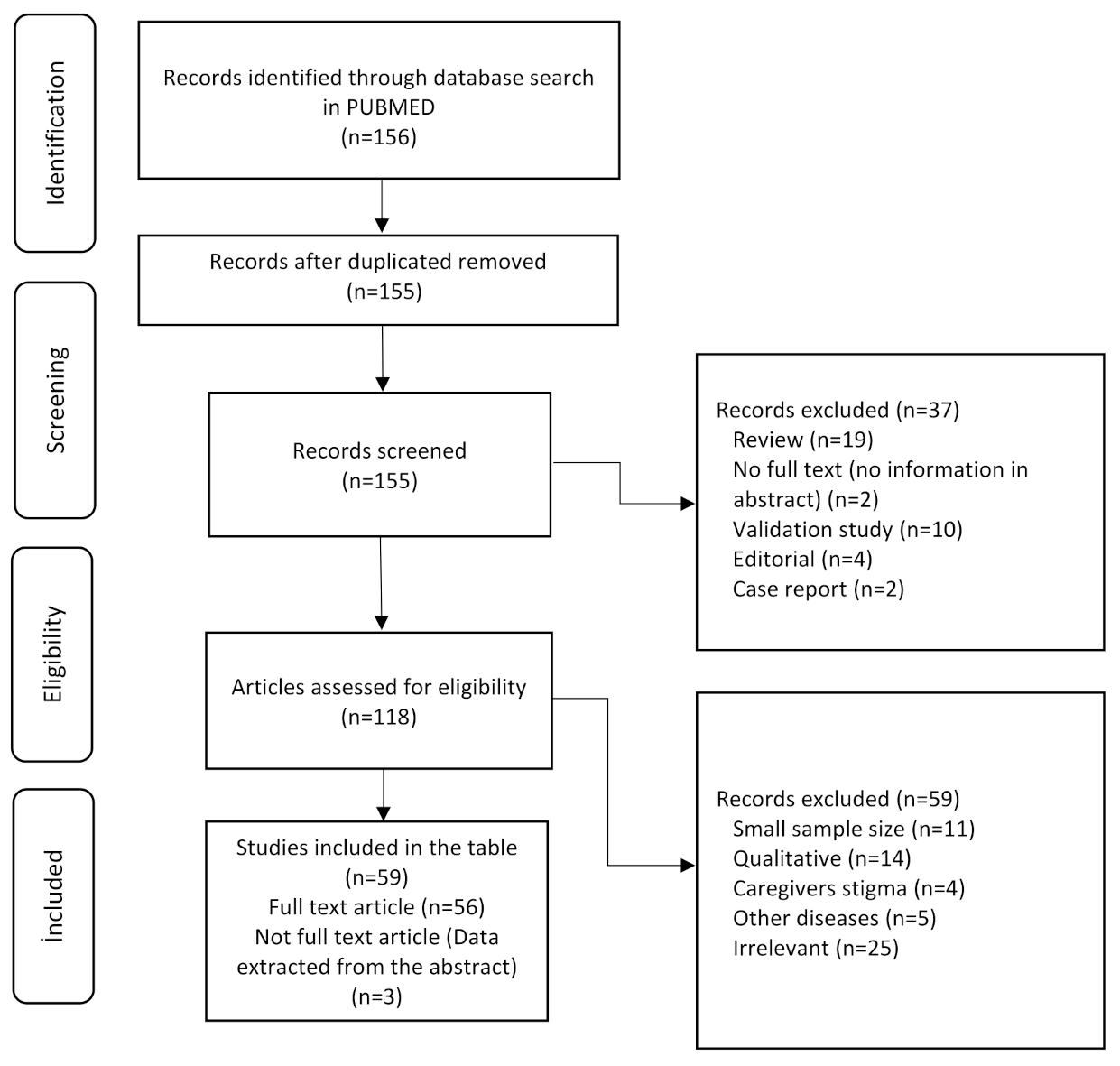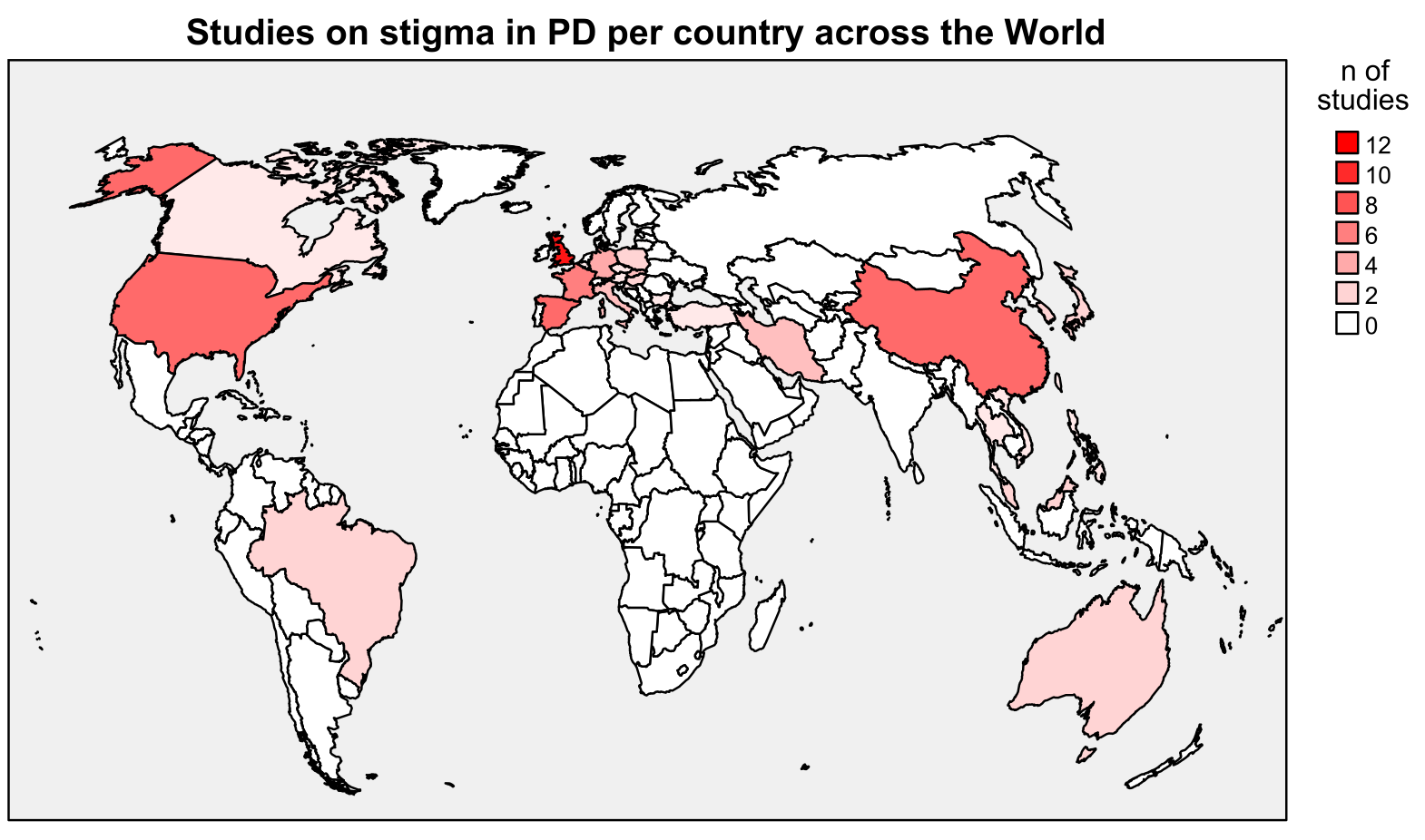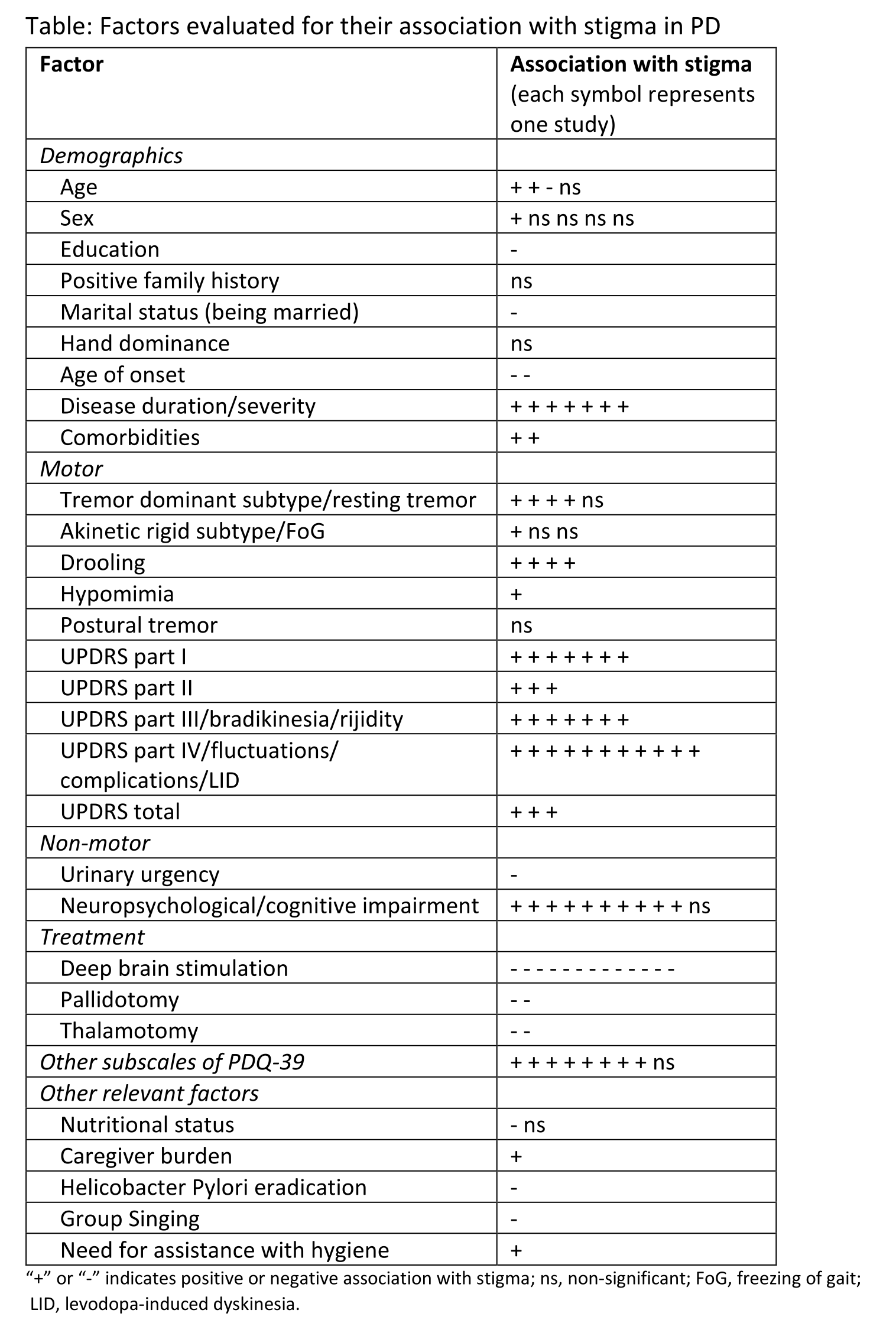Objective: To demonstrate the geographical distribution of studies among populations, and to summarize factors associated with stigma in Parkinson’s disease (PD).
Background: One of the most important aspects of quality of life (QoL) in PD is stigma given that it affects the socialization, psychology, and treatment compliance of the people with PD. As stigma may also be related to the culture of the given population, differences across the world may be expected. However, geographical/cultural bias in studies across distinct populations is yet to be fully acknowledged. Clarifying these would help define the gaps in the existing knowledge in stigma related to PD.
Method: “PubMed” electronic database was used to search articles until February 15th, 2022 with the keywords of “Parkinson” and “Stigma”. Articles with no information on stigma-related factors, with qualitative outcomes, on non-patient groups, and with a sample size < 20 were excluded. Papers with no full text were evaluated based on their abstracts. Duplicates were eliminated.
[Figure1]
Results: Fifty-nine publications were eligible for review. Studies focusing on stigma in PD were conducted in 30 different countries from five continents. Seven studies were multinational. Most of the studies were carried out in Europe (n=43, 55.1%, mostly UK=8) and Asia (n=23, 29.5%, mostly China=7). North and South America were represented in eight (10.2%) and two (only Brasil, 2.6%) studies, respectively. Oceania (only Australia) had two (2.6%) studies. No study from Africa was found.
[Figure2]
In the selected studies, five different stigma scales were applied. In total, 30 different factors supposed to be associated with stigma scores were reported [table1]. Of those, disease duration/severity, UPDRS (I, III, and IV), neuropsychological problems, and other scales of QoL were uniformly associated with increased stigma. DBS was associated with lower stigma scores. Discrepant or noticeable results were reported for age, sex, marital status, and PD-subtype with regard to their association with stigma, which could be confounded by cultural background.
Conclusion: Most factors affecting stigma in patients with PD were uniform across studies, indicating that stigmatization in PD is beyond cultural effects. There is also a huge geographical bias in studies, joint attempts for wider multi-national representations are needed.
To cite this abstract in AMA style:
S. Kibrit, AV. Karacan, G. Kayis, R. Yilmaz, MC. Akbostancı. Studies on stigma in Parkinson’s disease in the world. A literature review [abstract]. Mov Disord. 2022; 37 (suppl 2). https://www.mdsabstracts.org/abstract/studies-on-stigma-in-parkinsons-disease-in-the-world-a-literature-review/. Accessed April 25, 2025.« Back to 2022 International Congress
MDS Abstracts - https://www.mdsabstracts.org/abstract/studies-on-stigma-in-parkinsons-disease-in-the-world-a-literature-review/



